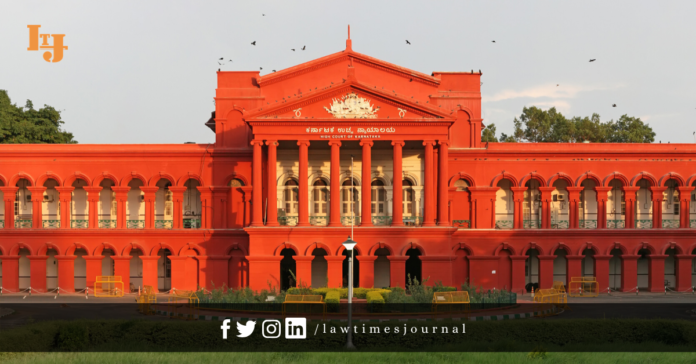
A division bench of Justice B V Nagarathna and Justice N S Sanjay Gowda of the Karnataka High Court has issued notice to the State Government while hearing petition on a Public Interest Litigation seeking directions to immediate formulate plan to ensure provision and distribution of low-cost Tablets, Laptops and any other Digital gadget to the school children of economically weaker sections to allow them to attend online classes.
A petition was filed by A. A. Sanjeev Narrain, Arvind Narrain, and Murali Mohan.
The petition states that the respondent is not providing the proper and adequate online resources to the students. It is violative of the Article 21-A[i] read with the provisions of the Right of Children to Free and Compulsory Education, 2009 (“Right To Education Act”) read with the Right of Children to Free and Compulsory Education Rules, 2010 (“Right To Education Rules”) read with the Karnataka Right of Children to Free and Compulsory Education Rules, 2012 (“Karnataka Right To Education Rules”).
Not providing sufficient resources to economically weaker sections students creates unreasonable clarification and where only small number of percentage of children are able to take online classes and majority number of students are not able to attend the classes thereby violating the Article 14[ii] of Indian Constitution.
Senior Advocate Harish Narsappa appearing for petitioner relied on order of the High Court dated on 8th July in which Court directed the State Government to withdraw order banning online classes and held that schools can resume with online classes. It was also observed that, State Government should take appropriate steps to ensure the facility of online classes to the student’s of rural areas.
Narsappa submitted that despite observation of the court, Respondent No.1 did not provide adequate facilities to students to ensure smooth running of online classes.
Petition relied on the report released by the National Statistical Office (NSO) of the Ministry of Statistics and Programme Implementation, on household social consumption on education in India for period of July 2017-June 2018. The report shows that in Karnataka, for rural households, only 2% of households have access to a computer and only 8.3% of households have access to internet facilities.
The plea also relies on the judgement of the Delhi High Court in case of Justice for all vs. Government of India & others. (“Justice for All” case) dated September 18, 2020.
The Petition prays for;
1. An appropriate writ, order or direction to respondents to ensure that free laptops, tablets, computers and high speed internet or any other equipment required for online classes to be provided free of cost to every child defined under Section 2(c) of the Right to Education Act except fee paying children with immediate effect.
2. An appropriate writ, order or direction to respondents to ensure that disadvantaged children and children belonging to the economically weaker section studying in private schools do not face any barrier while taking or attending online classes.
3. Pass appropriate order directing Respondent no.04 to withdraw a letter issued by Respondent no. 04 dated July 29, 2020 which was published by Respondent no.02 and any other circulars directing compulsory deployment of school teachers for COVID-19 duties.
Case: A.A Sanjeev Narrain vs. State of Karnataka & Othe
[i] Article 21-A of Indian Constitution: The State shall provide free and compulsory education to all children of the age of six to fourteen years in such manner as the State may, by law, determine.
[ii] Article 14 of Indian Constitution: Equality before law The State shall not deny to any person equality before the law or the equal protection of the laws within the territory of India Prohibition of discrimination on grounds of religion, race, caste, sex or place of birth.